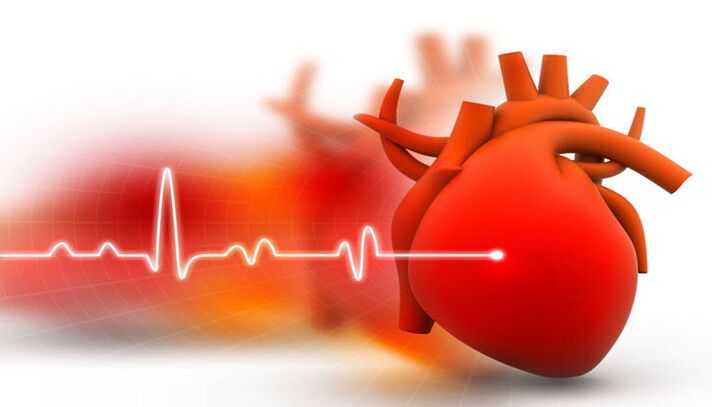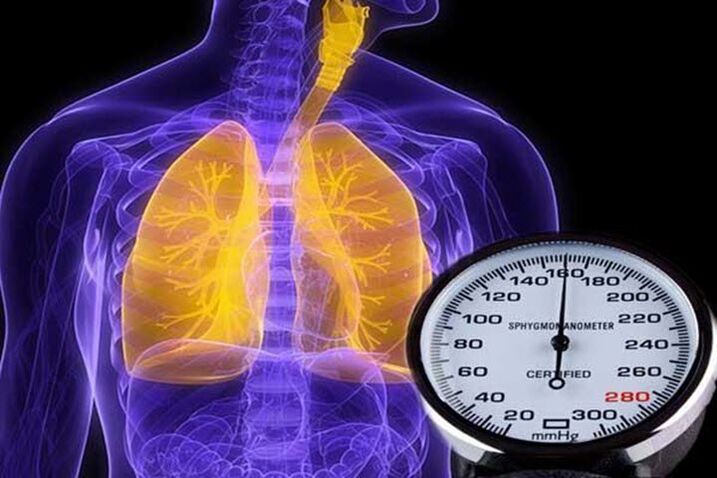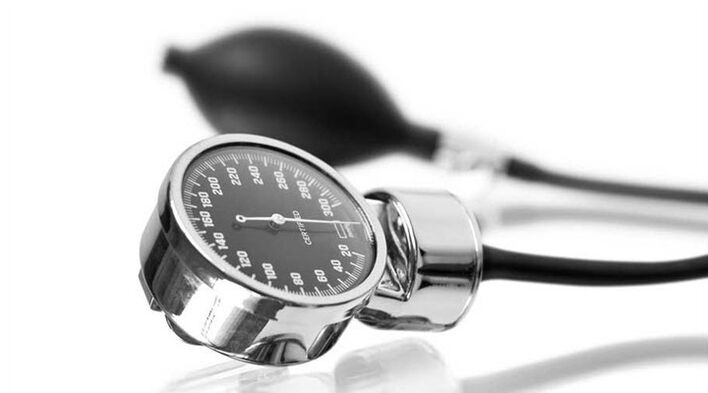According to medical statistics, high blood pressure is a frequently detected violation of the cardiovascular system. Developing high blood pressure has a negative effect on the blood vessels: it reduces elasticity and increases fragility. Such a process results in internal bleeding. Often, persistent hypertension leads to the development of fatal pathological conditions: cardiac ischemia, myocardial infarction or stroke.
Early diagnosis of high blood pressure, and timely prescribed treatment allows patients to avoid changes that could significantly worsen health markers or lead to death. People approaching the age of forty and older should monitor blood pressure regularly, have a blood pressure monitor at home, and seek medical help if they notice symptoms of other illnesses.
Causes of high blood pressure
What causes high blood pressure in people? What factors can drive its progress? These questions are still relevant, and people who are interested in their health will ask these questions to their doctor. Sustained high pressure values can cause certain changes in human function. The following diseases are affected:
- Vascular states that accompany atherosclerosis;
- heart failure;
- diabetes;
- gout;
- Rheumatoid Arthritis;
- Renal Pathology.

Other factors contribute to the development of high blood pressure. The cause of the disease is related to the following factors:
- Genetics: Children whose parents have been diagnosed with high blood pressure are most likely to develop the disease;
- age (over 45) and gender (more common in men);
- Overweight and obesity due to various causes (physical disturbances, limited mobility, consumption of high animal fats, salt, frequent overeating);
- Skull and brain injuries;
- Cholesterol levels significantly higher than normal;
- Hormonal changes in women during menopause;
- Alcoholism, smoking, addiction to caffeinated beverages;
- Complications following infection or viral disease;
- Ignore walks and prefer to stay indoors without fresh air.
High blood pressure is the norm in patients with emotional instability. Psychological discomfort, aggressive or angry aggression, being under stress, personal life tragedies increase the value of the indicator.
Classification and Stages of Disease
There are two ways to classify high blood pressure problems - by cause (cause of occurrence) and by degree of development (stage).
In cases where the nature of the hypertension cannot be reliably determined, a doctor will declare a diagnosis of primary (essential) hypertension. This is the most common and is observed in 95% of patients. The remaining 5% have secondary forms of the disease, which are additional manifestations of other diseases and require treatment.
The three stages of the process will vary in symptoms and their severity: mild, moderate, and severe.
Mild hypertension is characterized by an increase in blood pressure within the limits:
- Systolic blood pressure from 140 to 159 mmHg. stone;
- Diastolic blood pressure from 90 to 99 mmHg. Art.
The course of the disease at this stage is not complicated by visceral lesions, and often occurs without obvious symptoms.
For the average form of the disease, blood pressure values are in the range of 160-179/100-109 mm Hg. Art. The patient's heart and kidneys begin to be damaged, the state of the retina changes, and atherosclerotic plaques form in the blood vessels. In most cases, functional switching happens unknowingly.
Severe third-degree hypertension combines diagnosable heart, brain, visual organ, vascular system, and blood pressure markers above 180/110 mmHg. Art. High risk of hypertensive crisis

characteristic symptoms
Early and mid-stage high blood pressure may not cause symptoms, which is a risk factor for patients. The main symptoms indicative of the development of the pathological condition are headache and dizziness. They accompany the patient frequently and for a long time, and they occur due to cerebral vasospasm, which narrows. Other signs are general weakness, fatigue, nausea, ringing sensation in the ears, veil in front of the eyes.
People with high blood pressure experience other symptoms of high blood pressure:
- Decreased vision, feeling like your eyes are crushed;
- frequent nosebleeds;
- increased intracranial pressure;
- short-term loss of consciousness;
- Mood instability, mood swings;
- the development of insomnia;
- Physical activity causes severe reddening of the facial skin;
- Vomiting for no nutritional reason;
- increased pulse and heartbeat;
- Changes in memory, its deterioration;
- Limbs and face were significantly swollen.
Signs of hypertension appear in the course of the development of the disease of severity with complications of the heart and blood vessels: heart failure, arrhythmia, angina, myocardial infarction. Symptoms of high blood pressure combined with kidney failure, changes in blood supply to the brain, micro-strokes, strokes.
Hypertensive symptoms may appear in patients in different combinations, with different presentation properties: stable, intense, one-time. A feature of the disease is that people are dominated by high blood pressure.

diagnosis
In the case of suspected hypertension, a good reason for a thorough examination of the patient was three cases of increased stress indicators within a month. This symptom cannot be ignored.
Patients are advised to take independent measurements with a tonometer several times a day and record the results. In medical facility conditions, diagnostic methods such as daily monitoring of blood pressure are used. The instrument records pressure values during the day (every 15 minutes) and at night (twice an hour).
To determine changes in body function, clinical blood and urine tests assigned to patients are permitted. Cholesterol, protein, potassium, calcium, glucose, hemoglobin levels, lipid profiles and other indicators are important for diagnosing diseases.
Abnormal myocardial function indicates the presence of hypertensive features and signs of the development of hypertension. For its research, the following methods were used:
- Auscultation - with the help of a telephone endoscope, to hear the sounds produced by the organ and observe the rhythm of its work;
- Electrocardiogram - decoding of electrocardiograms taken from the patient allows for a detailed assessment of cardiac function over time;
- Ultrasound and echocardiographic diagnostic methods reveal myocardial and valvular defects, allowing correlation of atrium and ventricle size;
- Doppler studies make it possible to assess vascular status;
- Arteriography - Monitoring results inform changes in arterial walls, their damage, the location of cholesterol plaques.
If hypertension is suspected, fundus examination, ultrasonography of the kidneys and renal arteries, and adrenal glands are required.

Treatment measures
Treatment of high blood pressure involves the use of medications that maintain near-normal pressure. In cases where a second form of pathology is identified, treatment consists of getting rid of the disease, which is the underlying cause of increased stress in the patient.
Drug List
Eliminating high blood pressure values will help to take the medication exactly as directed by your doctor. First-degree hypertension does not require drug treatment, and patients are advised to change their lifestyle and habitual diet. Moderate and severe forms of the disease must be controlled with the drug group:
- Diuretics (thiazides) help to naturally drain fluid that accumulates in the patient's tissues, reducing their swelling and thus increasing vascular patency;
- Beta-blockers correct heart rate;
- sartans - a one-time intake of funds able to normalize blood pressure, keeping the results for a day;
- Calcium antagonists can correct cardiac activity and are used to treat severe angina and arrhythmias;
- Angiotensin-converting enzyme inhibitors dilate blood vessels, preventing them from spasm;
- Alpha-adrenergic blockers improve the condition of peripheral blood vessels.
Taking into account the general condition of the patient, concomitant diseases, the doctor prescribes a certain drug or their combination for each patient.
Provide first aid at home
It is not uncommon for people with high blood pressure to have uncontrolled increases in blood pressure. As his condition suddenly deteriorated, relatives were advised to call an ambulance immediately. Before she arrives, the following steps should be taken:
- Calm down the panic of a hypertensive patient: Stressful situations help increase blood circulation and increase stress;
- Taking herbal sedatives (Corvalol, Motherwort, Valerian) can improve the condition;
- It is important to accommodate a person comfortably, it is recommended that he sit in a comfortable position, lean, and relax;
- Cold compresses are required in the frontal area, while the legs should be warm (you can use a heating pad or mustard cream);
- need to take medicines recommended by a doctor urgently;
The process of providing first aid is accompanied by the removal of blood pressure indicators (every 10 minutes), the measurements should be recorded in writing, and the list must then be given to the doctor.
General Prevention Tips
Prevention of high blood pressure involves a series of measures. Doctors recommend lifestyle changes, diet, and use of folk experience to normalize the condition.
Medical institutions will point out the particular dangers of alcoholic beverages and smoking for people with high blood pressure and advise them to quit smoking. Moderate physical activity, leisurely walks in nature, and light work manifest.
Improving the patient's condition facilitates the transition to a special diet. Pickles and bacon, fried foods, fatty meats, and fresh bread should be avoided. Vegetables, fruits, herbs, dietary meat and dairy products, grains (rice, buckwheat), legumes should be the main ingredients of the new menu. Patients need limited intake of salt, sugar, and fluids.
Time-honored folk remedies don't let stress rise. Infusions and decoctions based on medicinal herbs, bee products, vegetables or nuts and other ingredients are individually selected in the desired proportions.



























